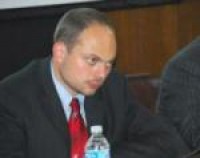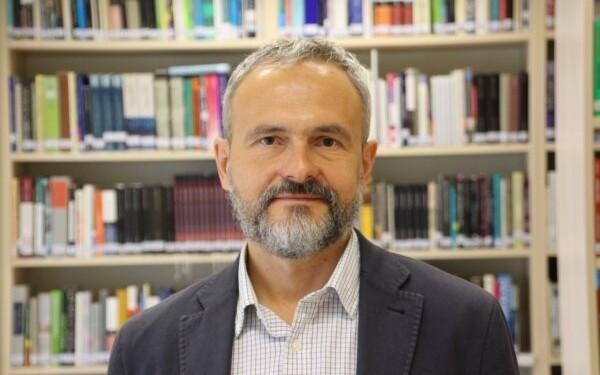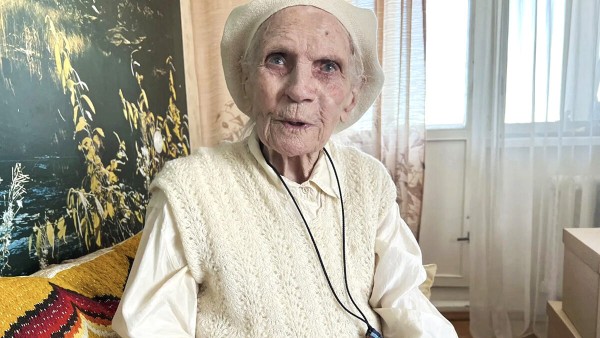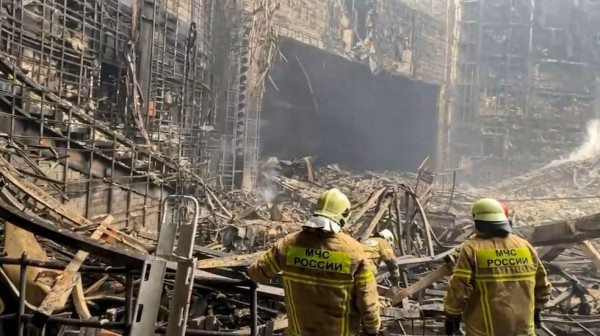https://www.washingtonpost.com...
Vladimir Kara-Murza
Global Opinions contributor
The death of renowned Russian physicist and human rights advocate Yuri Orlov last week prompted tributes from governments across the world. The one notable exception, unsurprisingly, was Orlov’s own, in Russia, whose record on human rights is almost indistinguishable from that of the regime he defied in the Soviet era. Knowing Orlov as I did, I think he would consider this silence a more fitting recognition than any hypocritical statement the Kremlin could have made.
Born in 1924, Orlov witnessed firsthand what the 20th century had in store for our country — from Stalin’s forced collectivization, which Orlov saw as a child, to World War II, where he distinguished himself in combat against the Nazis. A very private man, all he wanted was to be a scientist — and he excelled in his chosen field, nuclear physics, with a PhD, work in top research institutes, and membership in the Academy of Sciences.
In the Soviet Union, however, having a conscience was not compatible with private life. Orlov’s first conflict with the authorities came in the mid-1950s when he publicly referred to the Stalin-era leadership as “a bunch of scoundrels.” Later came his involvement in samizdat (the underground publishing network for literature banned by the authorities), his open letters, and his first contacts with the dissident movement.
But it was in 1976 that Orlov made his most important contribution to human rights, both in the Soviet Union and the world, and in so doing enshrined a principle that continues to this day. On May 12, at a news conference for Western journalists in the apartment of Andrei Sakharov, Orlov and several colleagues — including Pyotr Grigorenko, Anatoly (later Natan) Sharansky, Yelena Bonner and Alexander Ginzburg — announced the creation of the Moscow Helsinki Group to monitor the Soviet government’s compliance with its international commitments on human rights.
The previous year, at a summit in Helsinki, the leaders of 35 nations on both sides of the Iron Curtain — including Soviet leader Leonid Brezhnev and U.S. President Gerald Ford — had signed an accord that, for the first time, explicitly linked security and economic cooperation to observance of human rights. The Kremlin got much-coveted recognition of postwar boundaries in Europe and prospects for expanded commerce with the West in return for what it thought would be meaningless promises to "respect human rights and fundamental freedoms” and “fulfill [its] obligations as set forth in the international declarations and agreements in this field.”
The Politburo could be forgiven for expecting this to remain on paper. Many Western leaders were all too happy to look the other way on human rights for the sake of détente with the Kremlin — or, as prominent Russian dissident Vladimir Bukovsky once put it, to be able to “fry their morning bacon on Soviet gas.”
Thankfully, there were Russians who were determined to hold the Kremlin to account. Under Orlov’s leadership — and later, after his arrest and imprisonment in 1977 — the Moscow Helsinki Group published dozens of reports on human rights abuses by the Soviet government, from the persecution of religious believers and national minorities to the suppression of strikes and forced psychiatric “treatment” of dissidents. These reports were sent not only to Soviet bodies but also to Western governments and media organizations, as all signatories to the Helsinki Final Act had the right to monitor human rights in other participating states. “We already had a developed network of information about human rights abuses,” Orlov told me during our interview for a documentary on Soviet dissidents at his Cornell University office in February 2005. “The difference was that now we were framing them as violations of an international treaty, bringing the issue to a new level.”
Following Orlov’s lead, Helsinki watch groups were formed in other Soviet republics, including Lithuania, Georgia and Ukraine, and in countries of the Warsaw Pact. On their foreign trips, Soviet officials were confronted with substantiated reports of violations of their obligations in what became known as the “human dimension.” In a fitting tribute to the Helsinki principles, President Ronald Reagan personally negotiated Orlov’s release before Reagan’s 1986 summit with Mikhail Gorbachev. The following year, the head of the Soviet delegation to the Vienna meeting of the Conference on Security and Cooperation in Europe announced that his government would start releasing political prisoners, since their continued incarceration “created tensions in our relations with other countries.”
Today, the principles spearheaded by Orlov are a cornerstone of international human rights work. The most important of them — that “issues relating to human rights, fundamental freedoms, democracy and the rule of law are of international concern … and do not belong exclusively to the internal affairs of the state” — has been officially enshrined by the Organization for Security and Cooperation in Europe. Just as was true of the Soviet Union, many of the actions of Vladimir Putin’s regime in Russia — from annexing other countries’ territory to rigging elections to imprisoning opponents — contravene not only domestic law but international obligations as well.
As in Yuri Orlov’s time, many Russians are willing to take risks to document and publicize these abuses. Their courage should be matched by Western leaders who will not look the other way.
Remembering Yuri Orlov, a giant of the human rights movement
Eestlased Venemaal | 11 Oct 2020 | EWR
Eestlased Venemaal
TRENDING

























